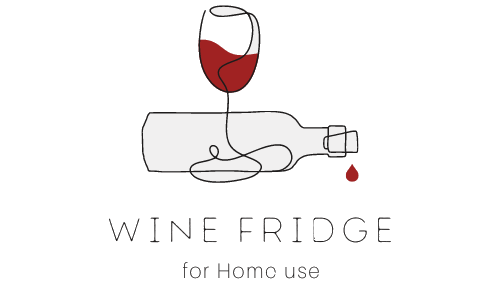Imagine enjoying a glass of perfectly chilled wine, the crispness and flavor tantalizing your taste buds. Now, imagine that same wine, spoiled due to improper storage. No wine enthusiast wants that unfortunate experience. This is where insulation in a wine fridge comes into play. It may seem like a minor detail, easily overlooked, but the truth is, insulation is a crucial factor in maintaining the ideal temperature and humidity levels for your precious collection. In this article, we will explore just how important insulation is in a wine fridge and why it should be a top consideration when selecting the perfect storage solution for your valuable wines.
Understanding Insulation in a Wine Fridge
Defining insulation
Insulation refers to the materials used to create a barrier that restricts the flow of heat. In the context of a wine fridge, insulation plays a crucial role in maintaining a stable temperature inside the unit. It acts as a protective layer, preventing external temperature fluctuations from affecting the quality of the wine stored within.
The role of insulation in a wine fridge
Insulation in a wine fridge is essential for several reasons. Firstly, it helps to maintain a consistent temperature, which is crucial for preserving the flavors and aromas of the wine. Additionally, insulation also plays a vital role in humidity control, as it helps to minimize moisture loss or infiltration. Finally, insulation helps to minimize vibrations and control light exposure, which can have detrimental effects on the wine stored inside.
The Scientific Principle behind Insulation
How does insulation work?
Insulation works based on the scientific principle of thermal resistance. It involves using materials with low thermal conductivity, such as foam or fiberglass, to impede the transfer of heat. When properly applied, insulation acts as a barrier, preventing the external temperature from affecting the internal temperature of the wine fridge. This thermal resistance helps to maintain a consistent and optimal temperature for storing wine.
Types of insulation materials used in wine fridges
There are various types of insulation materials used in wine fridges, each with its own unique properties. Commonly used materials include polyurethane foam, which provides excellent insulation due to its low thermal conductivity. Another popular choice is expanded polystyrene (EPS), known for its high resistance to heat transfer. Some wine fridges also utilize fiberglass insulation, which offers good thermal resistance and soundproofing properties.

Benefits of Proper Insulation in a Wine Fridge
Temperature control in wine fridges
One of the primary benefits of proper insulation in a wine fridge is its ability to maintain a consistent temperature. Fluctuations in temperature can have a detrimental impact on the quality of the wine, leading to premature aging, flavor degradation, and even spoilage. Effective insulation ensures that the temperature remains stable, providing an optimal environment for the wine to age gracefully and maintain its desired characteristics.
Energy efficiency benefits
Proper insulation in a wine fridge also contributes to energy efficiency. By reducing heat transfer, insulation minimizes the workload on the cooling system, allowing it to operate more efficiently. This not only helps to lower energy consumption but also prolongs the lifespan of the cooling unit. So, investing in a well-insulated wine fridge not only benefits your wine but also helps to conserve energy and save money on electricity bills.
Prolonging the life of the wine
With proper insulation, a wine fridge can significantly extend the lifespan of the wine stored inside. Consistent temperature control prevents the wine from premature aging or deterioration, allowing it to develop its full potential over time. Additionally, insulation also protects the wine from external factors, such as light exposure or vibration, which can negatively impact its quality. By providing a stable and controlled environment, insulation helps to preserve the integrity and flavor of the wine, ensuring that it can be enjoyed at its best when opened.
Temperature Fluctuations and Wine Quality
Effects of temperature on wine
Temperature fluctuations can have a profound effect on the quality of wine. When exposed to high temperatures, wine can age rapidly, causing undesirable changes in taste, color, and aroma. Alternatively, extreme cold temperatures can also negatively affect wine, leading to the formation of sediments or even freezing, which can damage the structure and taste of the wine. Consistency in temperature is vital for maintaining the delicate balance of flavors and aromas in wine, which is why insulation is crucial in a wine fridge.
How insulation helps maintain consistent temperatures
Insulation provides the necessary thermal resistance to protect the wine fridge from external temperature fluctuations. By acting as a barrier, it ensures that the cooling system can maintain a stable internal temperature, unaffected by changes in the surrounding environment. This insulation layer helps to buffer against sudden spikes or drops in temperature, providing a controlled climate for the wine to age properly. Consistent temperatures allow the wine to mature at a more desirable pace and preserve its intended characteristics.

The Role of Insulation in Humidity Control
The importance of humidity in wine storage
Humidity plays a vital role in wine storage as it affects the condition of the cork and the overall aging process. Insufficient humidity can cause the cork to dry out, leading to air leakage and oxidation of the wine. On the other hand, excessive humidity can promote the growth of mold or mildew, which can taint the wine and its packaging. Maintaining the right humidity level is essential for preserving the quality and longevity of the wine.
How insulation helps manage humidity levels
Insulation not only helps to maintain temperature stability but also aids in managing humidity levels within a wine fridge. By limiting airflow and preventing moisture infiltration, insulation helps to minimize the loss of humidity. This, in turn, helps to preserve the integrity of the cork, ensuring a proper seal and preventing oxidation of the wine. Additionally, quality insulation also provides a barrier against excessive humidity, shielding the wine from the risks of mold growth or damage to labels and packaging.
The Issue of Vibration in Wine Fridges
Impact of vibration on wine
Vibration can have a detrimental effect on the quality of wine. It can disturb the sediment in the bottle, disrupting the aging process and altering the wine’s taste and texture. Additionally, constant vibration can also lead to premature oxidation, affecting the wine’s overall stability and aging potential. Minimizing vibration is crucial for preserving the integrity and quality of the wine stored in a wine fridge.
How insulation minimizes vibration
Insulation acts as a buffer against external vibrations, protecting the wine from any potential disturbances. By creating a layer of protection, insulation helps to absorb and dampen vibrations, preventing their transfer to the wine bottles. This reduces the risk of sediment disturbance and ensures that the wine can age undisturbed. Effective insulation, combined with a sturdy construction, provides a stable and vibration-free environment for the wine to mature gracefully.

Insulation and Light Control
The effect of light on wine
Exposure to light, especially ultraviolet (UV) light, can have a detrimental effect on wine. UV rays can break down organic compounds in the wine, leading to unpleasant aromas, loss of flavor, and the premature aging of the wine. To protect the wine from light damage, it is essential to control and minimize its exposure.
How insulation helps control light exposure
Insulation in a wine fridge also plays a role in controlling light exposure. Well-insulated wine fridges are typically designed with solid doors or tinted glass that helps to block out light. This prevents harmful UV rays from entering the fridge and affecting the wine. Additionally, some wine fridges come with built-in LED lighting, strategically positioned to provide ample illumination without causing any harm. The combination of insulation and light control ensures that the wine remains protected from light damage, allowing it to age gracefully.
Common Problems and Solutions with Wine Fridge Insulation
Common issues related to poor insulation
Poor insulation in a wine fridge can lead to various problems. Inadequate insulation may result in temperature fluctuations, compromising the quality of the wine stored inside. It can also increase energy consumption as the cooling system works harder to maintain a consistent temperature. Additionally, poor insulation may fail to provide sufficient humidity control, leading to cork dryness, oxidation, or mold growth. Finally, subpar insulation can allow light exposure and vibrations to affect the wine, resulting in flavor degradation or premature aging.
How to address and fix insulation problems
Addressing insulation problems in a wine fridge is crucial to ensure proper wine storage conditions. If you notice temperature fluctuations or excessive energy consumption, it may be necessary to evaluate and replace the insulation. Consult the manufacturer’s guidelines or seek professional assistance to identify the appropriate insulation materials and techniques for your wine fridge. Upgrading to high-quality insulation materials, such as polyurethane foam or EPS, can help improve temperature stability, energy efficiency, and overall storage conditions. It is also important to regularly inspect and maintain the seals and gaskets of the wine fridge to minimize any potential insulation issues.
In conclusion, insulation is of utmost importance in a wine fridge for maintaining optimal storage conditions. It not only helps to control temperature but also plays a key role in humidity control, vibration reduction, and light exposure management. With proper insulation, a wine fridge can provide a stable and controlled environment for the wine to age gracefully, preserving its flavors, aromas, and overall quality. Investing in a well-insulated wine fridge ensures that your collection is protected and can be enjoyed at its best when the time comes to uncork and savor each bottle.
